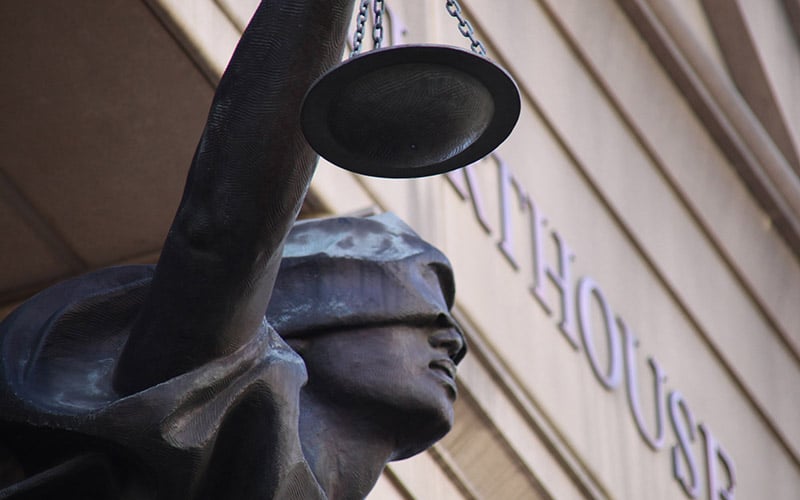
Maricopa County Attorney Bill Montgomery said his office will likely appeal a federal court ruling that the county acted improperly when it got a wiretap as part of a 2011 investigation. (Photo by Tim Evanson/Creative Commons)
WASHINGTON – A federal appeals court ruled this week that Maricopa County prosecutors who used state law to get a wiretap as part of a 2011 investigation may have run afoul of federal wiretap laws in the process.
A three-judge panel of the 9th U.S. Circuit Court of Appeals ruled Wednesday that federal law requires the “principal” prosecuting attorney to sign off on wiretap, as opposed to just a prosecuting attorney under state law.
Maricopa County Attorney Bill Montgomery authorized deputy county attorneys to apply for the wiretap even though there was no evidence that “he was himself familiar with the relevant facts and circumstances” of the case, the court said, in violation of federal law.
Despite the errors, the court said the wiretap application was carried out “in good faith” and that Manuela Villa, whose conversations were intercepted in the wiretap, cannot subsequently seek damages.
Villa’s attorney, Cameron Morgan, said the “idea that there was good faith in this, to me, is just simply wrong.” But he said the ruling should help others in the state who are targets of wiretaps.
“In Arizona, we do about 15 to 20 wiretap investigations every year and those wiretap investigations can have numerous wiretaps within the investigation,” Morgan said Thursday. “That means thousands and thousands of people can have their phone calls intercepted and their privacy invaded by the government, which is what we consider to be illegal justification.”
Montgomery said Thursday that he expects to challenge the ruling.
“We will most likely appeal,” Montgomery said in a statement released by his office. “Point of fact, I do read each affidavit provided by law enforcement in support of a wiretap application.”
But the court opinion by Circuit Judge William Fletcher said that there was no indication in the record that Montgomery had familiarized himself with the details of the investigation.
Under federal law, there are a number of factors that must be shown when requesting a wiretap, including the suspected crime involved, the failure of other methods of getting information and a statement that future attempts are unlikely to succeed.
The federal law also requires that the principal prosecuting attorney must provide a “full and complete statement of the fact and circumstances relied upon by the applicant, to justify his belief that an order should be issued.”
One of the challenges raised by Villa was whether the application for a wiretap, made by a deputy county attorney, conflicted with the federal law.
“States may choose to enact wiretapping statutes imposing more stringent requirements, or they may choose to forego state-authorized wiretapping altogether,” Fletcher wrote, but they cannot have laws less stringent than the U.S. law.
“These requirements are a floor, not a ceiling,” Fletcher said.
Montgomery’s actions did not meet the “minimum procedural requirements for state and federal orders authorizing wiretapping,” set forth by federal law, Fletcher said.
Villa also challenged the county’s failure to seal recordings from the wiretaps “immediately upon the expiration of the period of the order,” as required by federal law. Arizona law gives prosecutors 10 days to make the recordings available to the judge who issued the order so that they can then be sealed. The quick turnaround for submitting records is to prevent tampering with recordings, the appeals court said.
In Villa’s case, the wiretap records were not sealed until after the investigation ended – “more than two-and-a-half months” after the wiretap order expired. Fletcher said a delay that long is “inconsistent with Congress’s intent to minimize the possibility of tampering.”
But Fletcher said that the state’s 10-day grace period “does not substantially undermine the purpose” of the federal law, to “ensure the reliability and integrity of evidence obtained by means of electronic surveillance.”
Morgan said he was disappointed that Villa will not be able to collect damages, but “very, very happy with the fact that they ruled on the merit in our favor.”
“We won and we lost,” he said.